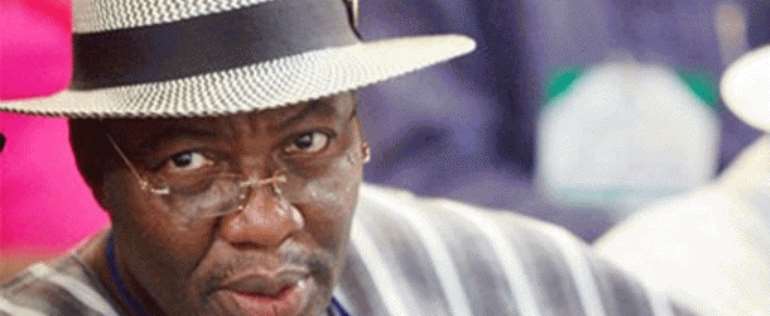Daniel Loses Bid to Quash EFCC Charges

Ogun State High Court sitting in Abeokuta has dismissed an application filled by the former governor the state, Gbenga Daniel, is seeking to stop further proceedings on his ongoing trial by the Economic and Financial Crimes Commission (EFCC).
Recalled that the former governor had, through his counsel, Professor Taiwo Osipitan, filed an application seeking an order of court to strike out counts 1 to 13 of the 38-count charge before the court.
The charges border on alleged fraudulent conversion by trustees, land and other landed properties of Ogun State government.
Also, Daniel had argued that the constitution of the Commission and the subsequent publication of its findings would compromise his entitlement to fair
hearing.
However, in his ruling yesterday, Justice Olanrewaju Mabekoje said the Commission on Inquiry which was set up based on the Commission of Inquiry Law of Ogun State, 2006 was a commission and not a tribunal or court of law.
Mabekoje said the commission's activities was regulated by its terms of references and as such could not be equated to a tribunal or a court of law, adding that its findings cannot be said to be conviction or judgment.
On the grounds that the continuous hearing of the counts would amount to double jeopardy on the side of the applicant, the judge posited that the position was totally misconceived because the accused person has not been tried or convicted by any law court.
On the alleged abuse of court process, the Justice Mabekoje said it was an improper use of judicial process, adding that what the court is to determine is the criminality or otherwise of counts 1-13.
He added that the setting up of a commission of inquiry by the state government was done pursuant to an existing law of the state and that it can never amount to abuse of court process.
He further said that Ogun State government could not be said to have acted in contempt of the court, saying that the commission of inquiry was set up before the information was filled before the court.
He said it will be erroneous to argue that the applicant has been adjudged guilty in the instant case since the matter has not be adjudicated upon by any competent court of law.
'Since the applicant has also made an attempt at a court of coordinated jurisdiction to quash the findings of the commission of inquiry, it is my view that the findings and the said publication has no effect on this court.
'The issues dealt with by the commission are different from the live case before this court and there is no justifiable evidence to support the argument that the publication is capable of causing double jeopardy on the applicant.
'There is no basis to the orders sought by the applicant and it will be unjust and unreasonable to grant the application, I therefore make an order dismissing the application,' the judge ruled.
